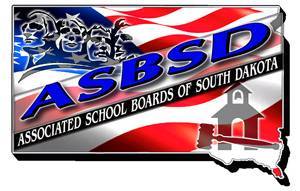Legislative committee members approved a cutout in property tax assessment of very specific ag land.
House Bill 1039, which provides for the assessment of certain agricultural land as noncropland, passed the House Ag committee on a 10-3 vote.
The bill would change land currently classified as cropland to noncropland if it is greater than 1,900 feet above sea level and meets one of these two criteria:
- It has been seeded to perennial vegetation for at least twenty years, and used for animal grazing or left unharvested; or
- Is native grassland.
HB 1039 eschews the soil classification of the land and again highlights the fight among ag producers over taxation methods of their land. Proponents of the bill, among of them West River legislators, argued it was a tax fairness bill.
“It’s a grasslands tax and fairness measure,” S.D. Stockgrowers Association Lobbyist Jeremiah M. Murphy testified. “Grassland’s a very narrow sliver that represents a blind spot in the productivity system.”
The system Murphy was referring to is the Agricultural Land Productivity Formula, which he said “overall, the productivity system works” but the size of the “narrow sliver” he referred to that would be affected by the bill could not be answered.
“I’m not aware of the numbers,” Rep. Trish Ladner, the bill’s prime sponsor, answered when asked how much land would be encompassed in the 1,900 feet specification.
S.D Department of Revenue Deputy Secretary David Wiest told committee members “House Bill 1039 is going to result in some tax shifts.”
“This bill would give ag (land) another benefit. Somebody else is going to pay more,” Wiest said. “This bill picks winners and losers across the state.”
Wiest went on to add, “folks in the state aid education formula are going to be hit, as well.”
ASBSD opposes HB 1039 based on Association resolution C8. Protecting School District Valuations.
Executive Director Wade Pogany shared his concerns about the bill’s impact on schools citing the bill’s change in property taxes would not only affect a local district’s general fund, but also the capital outlay and special education levies, which “would also take a hit.”
Rep. Charles Hoffman said he didn’t “think there’s going to be an enormous amount of dollars” shifted in tax burden.
A statement Rep. Roger Chase disputed.
“Think about what we’re doing here,” Rep. Chase told fellow committee members. “We have no idea how this is going to be a tax shift to residential and commercial.”
“(It) would be totally irresponsible to send this down to the (House) floor.”
To the floor HB 1039 does go, though, as it awaits debate and vote.
For updates on the bill and the 2022 legislative session, check the ASBSD Blog and Bill Tracker page.
